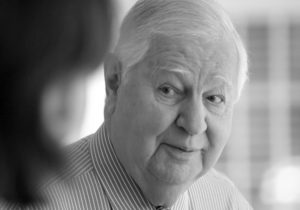At the beginning of 2020, we decided to shift from the local public school to educating our kids at home. We had some strong principles for getting into public school in the first place, and then, they shifted. What were the values for starting with public school, and what are the values that are shaping us now?
Why we started with public school
There were three main reasons we initially had our children in the public school system. First, we wanted to free up Jen’s time. We wanted to give her opportunities for ministry, time to meet up with friends, and time to get the rest that she needed (you know, that moms always need and hardly ever get). Second, we wanted to be integrated into the community around us. We wanted to be a part of the fabric of our neighborhood. Finally, we want to be around kids and parents that were different than us. Different cultural backgrounds, different religious beliefs, different economic statuses.
We had varying degrees of success in those goals, but overall we loved the experience. So why shift?
1. We wanted more flexibility to move as a family.
Doing public school means that you’re working on someone else’s schedule, at someone else’s pace. While it’s good to learn the rhythms of the wider community, there were times we wanted to have the freedom to travel, to learn, to work and to serve without our kids having to play catch-up with a school schedule.
We also wanted some of the freedoms of learning at a different pace. In a frenetic classroom setting, it can hamper a kid’s ability to focus. Some things take longer to absorb because of distraction, and other things are learned more because of the necessity of classroom management.
2. Classroom metrics are wildly out of hand.
While I can appreciate the desire to provide transparency into a child’s education, and I see the need to assure parents that, indeed, their child is making progress, the kinds of reporting that are required of these teachers is wildly out of control. The time it takes to chart all the information is disproportionate to the time that could be spent investing one on one with children helping them make actual progress.
I don’t know of any teacher who loves doing the analytical paperwork that turns a curious, growing, child into a list of statistics. This investment spills over into every area of learning. Time that could be spent interacting is spent playing computer games and watching videos. This affects not only the mental wellness and education of the child, but it affects the teacher as well, since it adds an additional burden that they have to take with them into long hours after school or into the evening.
3. The beauty of education is amplified when God is central.
Ah, the “religious” reason. However, this isn’t a head-for-the-hills kind of instinct, as if every educator is trying to fill our kids minds with pagan worldviews. For the most part, we loved the community in the public school, and our kids loved their teachers. What was missing was not the indoctrination, but the imagination. A secular worldview strips the universe of its enchantment, and leaves us with moral pragmatism. A Christian worldview, on the other hand, infuses every branch of education with a sense of wonder and reverance.
Every piece of good literature is expressing something that reflects the imago dei, or our fallen sin nature, or the echoes of redemption. Every piece of good science speaks to a world ordered by a powerful—and even playful—creator. Principles of math and philosophy, logic and theology, all tell us that we can know something about God, and about the world he has made. By explicitly placing the Triune God at the center of an education, the world begins to actually make sense.
4. COVID.
Of course, no one expected this to happen. We had been considering homeschooling before the pandemic hit. But then it did, and now, just like so many others parents around the nation, getting a home education has become a much more attractive alternative. Not necessarily for health reasons (we’re probably like a 3/10 on the how-freaked-out-are-you scale), but more for the additional restrictions and requirements that are going to be inevitably required in the public classroom.
Nothing’s perfect. The broader issues of friends and community are still important values for us. Both the state of the world and the rhythms of our family will continue to change. But for now, at least, I am thrilled to be attempting what I consider an adventure in education.



